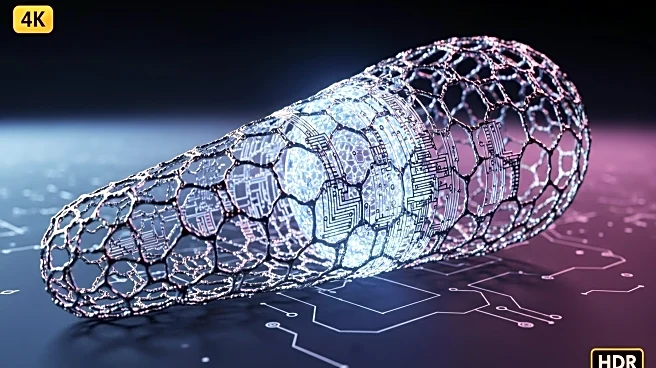What is the story about?
What's Happening?
Researchers at the Indian Institute of Science in Bengaluru, in collaboration with Japanese partners, have discovered that graphene can violate the Wiedemann-Franz law, a fundamental principle in physics. This law traditionally links a material's electrical and thermal conductivity. However, graphene's electrons, under specific conditions, decouple these properties, allowing electrical conductivity to rise while thermal conductivity drops. This phenomenon occurs at the Dirac point, where graphene behaves like a quantum liquid, challenging long-standing scientific assumptions.
Why It's Important?
The discovery that graphene can break the Wiedemann-Franz law has significant implications for technology. By decoupling heat and charge transport, graphene could revolutionize heat management in advanced devices, leading to more efficient electronics and quantum sensors. This breakthrough suggests that our understanding of charge and heat transport is incomplete, opening new avenues for research and development in materials science. The ability to control graphene's unique properties could lead to innovations in superconducting systems and other high-tech applications.
Beyond the Headlines
Graphene's ability to bend the laws of physics highlights its potential as a 'wonder material.' The discovery pushes graphene into the realm of science fiction, suggesting that once scientists learn to fully control it, the possibilities could be limitless. This research challenges traditional physics and could lead to a reevaluation of how materials are used in technology, potentially transforming industries reliant on efficient heat and charge management.

















